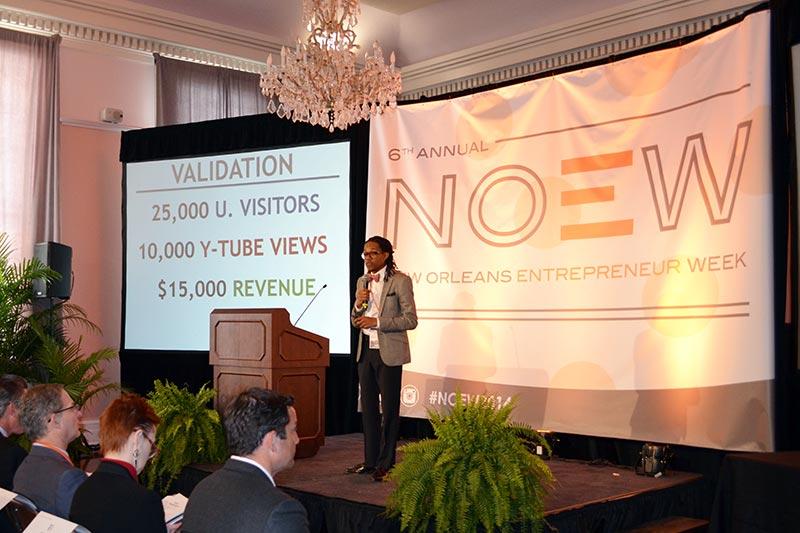Tulane Business Model Competition announces semifinalists for $25,000 top prize
Tulane University’s A. B. Freeman School of Business has named the six student teams that will face off in the qualifying round of the 2017 Tulane Business Model Competition.
Presented by the Freeman School’s Albert Lepage Center for Entrepreneurship and Innovation, the contest awards over $40,000 in cash prizes to university-based startups and early-stage ventures that demonstrate high growth potential and a market-tested ability to adapt to customer needs. The annual competition attracts applicants from business schools across the country.
“Year after year, the level of competition for the Tulane Business Model Competition continues to impress,” said Ira Solomon, dean of the Freeman School. “We’re all looking forward to hearing these six outstanding teams pitch their ideas as they vie for a spot in the final round.”
This year’s qualifying round will take place on March 23 at the Hotel InterContinental during New Orleans Entrepreneur Week. Each semifinalist will have 10 minutes to pitch its venture to a panel of judges. Three teams will be chosen to advance to the competition’s final round to be held on April 20 at Tulane University.
The winning team will receive $25,000 and earn a spot in the International Business Model Competition in Mountain View, Calif., on May 11-12. The runner up will receive $10,000; the third-place prize is $2,500.
The six semifinalists include:
Bhoomi Cane Water (Tulane University) develops “cane water” based beverages, which are rich in healthy nutritional elements. Bhoomi Cane Water is made by cold pressing sugarcane.
CMDX Biopsy (Tulane University) is a fully automated biopsy device for use in clinical settings. This device replaces traditional punch biopsy procedures by automatically removing skin samples from patients with skin lesions or possible melanomas.
Kaleyedos (Johns Hopkins University) provides a telemedicine solution to Retinopathy of Prematurity (ROP), a retinal disease that affects premature infants. If left untreated, it can cause visual impairment and blindness.
Kulisha (Brown University) offers a wastewater treatment solution for food and beverage processing plants that converts organic bio solid waste products into a sustainable insect-based protein for use in animal feeds and an agricultural fertilizer.
Managr (Tulane University) is an organizational hub that allows small business owners to easily manage all the online tools businesses need from one, easy-to-use site.
Instapath Bioptics (Tulane University) has developed an imaging technology for interventional radiologists that halves pathology evaluation time for biopsy procedures.

